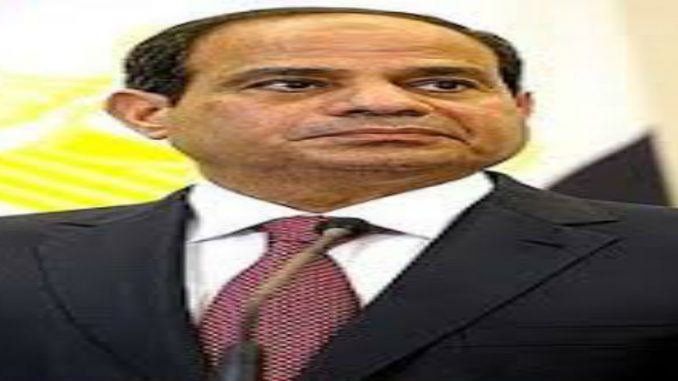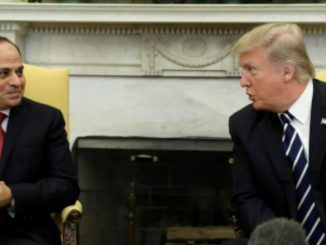
Abdel Fattah al-Sisi has chosen three former leaders at state news organizations during the era of deposed autocrat Hosni Mubarak to lead new media watchdog agencies.
The move is considered part of measures to tighten the regime’s control over the country following two horrific church bombings last weekend.
Al-Sisi has publicly criticized media coverage of the deadly suicide bombings in the cities of Tanta and Alexandria north of Cairo, which killed at least 45 and injured scores. He said in a televised comments hours after the attacks that the media must keep the country’s national interests in mind.
His words raise concerns that the government is seeking to tighten its already firm grip on the media.
It is worth mentioning that since al-Sisi reached power through a military coup against Egypt’s first democratically elected President Mohamed Morsi in 2013, the Egyptian authorities have launched locked up journalists and the country has fallen to the bottom of press freedom indexes.
Two of those figures — Makram Mohamed Ahmed, the former journalists’ union head and Karam Gabr, former editor-in-chief of a state-owned newspaper — were driven from their positions amid January 25 Revolution in 2011 that ended Mubarak’s ear. The third is Hussein Zein, who held a senior post at the Radio and Television Union in the Mubarak era.
Al-Sisi made his appointments for the chairmen of the Supreme Council for Media Regulation, the National Press Authority, and the National Media Authority according to a law that was passed in December, but which received new impetus after last Sunday’s killings.
The journalist Karem Mahmoud, who helped draft an early version the law said, “The boards in their current form are dominated by executive authority representatives, to guarantee its control over state-owned and private media.”
But Mahmoud said that original draft it had since been amended by ministers and members of a heavily pro-Al-Sisi Parliament to further pare back press freedoms. The state-run Al-Ahram newspaper said all but four of the 596-member unicameral legislature voted in favor.
Mahmoud said, “This isn’t the law the committee proposed,”, noting that the final version had only 89 articles as opposed to an original 230 — many of which had sought to lay out freedom of speech in line with Egypt’s constitution.
Moreover, the journalist Karem Mahmoud pointed that al-Sisi’s move, along with a similar draft bill that would enable him to choose the nation’s highest judges, would give the executive branch the authority “to silence any dissenting voice.”



